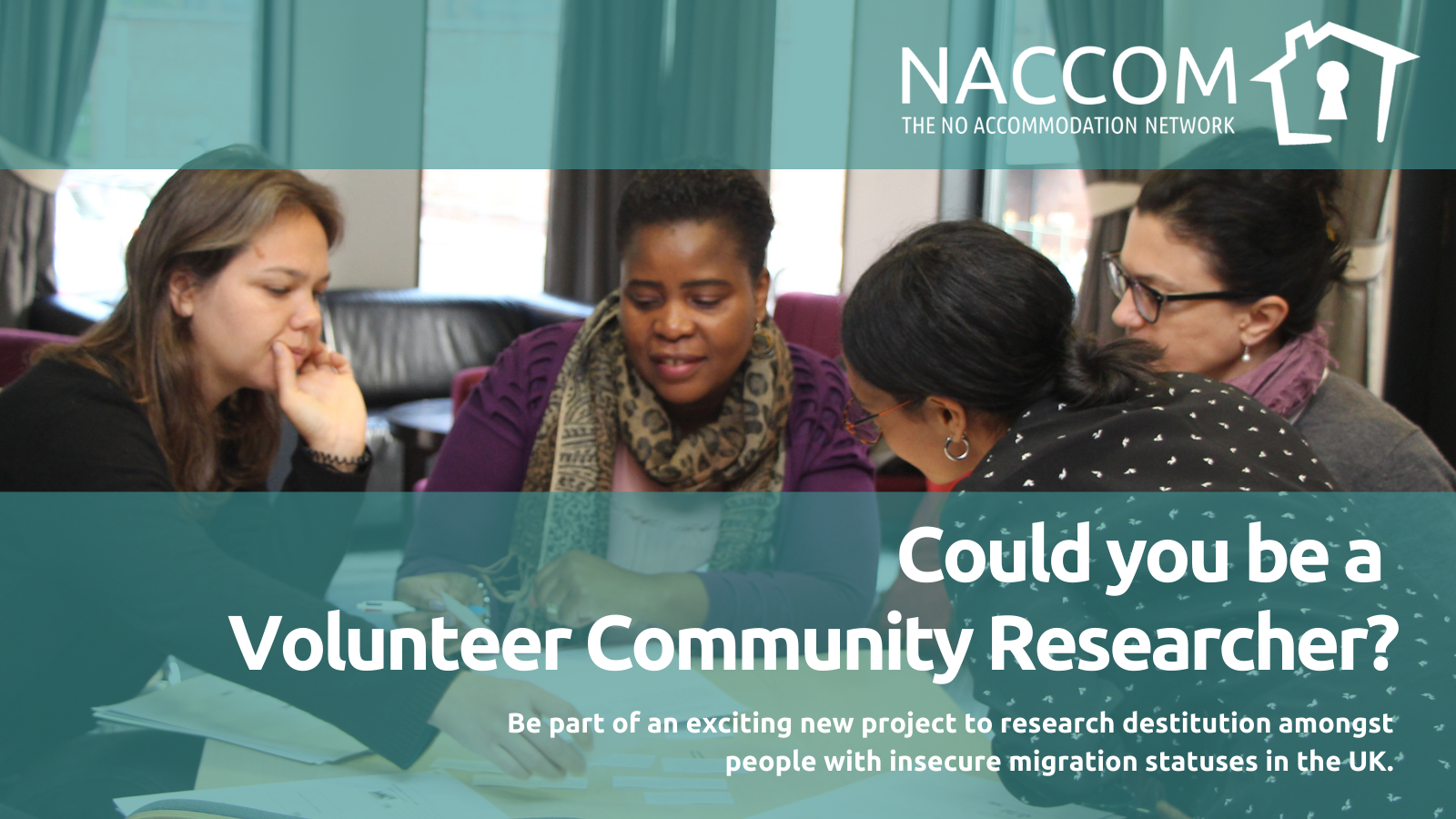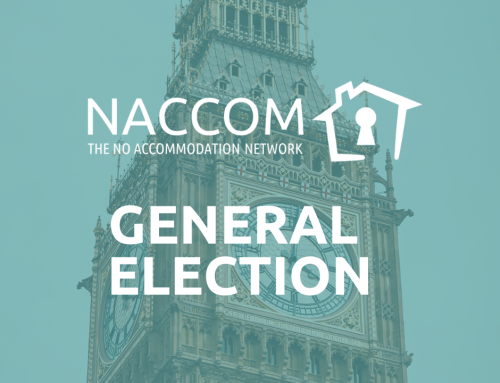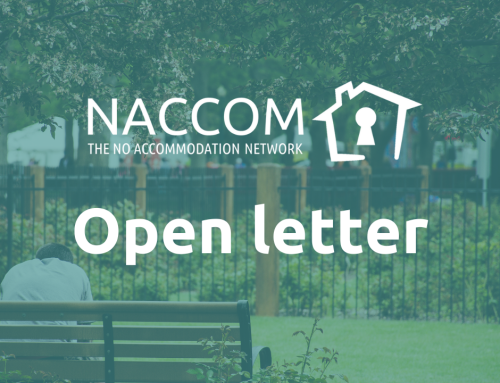As refugees and people seeking asylum in the UK we think we shouldn’t talk, we shouldn’t share our stories. That what is happening is normal, that I must take this lying down, I have to accept this. This is completely wrong and I learnt to open myself to talk, to trust people.
~ Reflection from a member of our Community Reporting group
NACCOM has launched a new volunteer role for people with lived experience of destitution and the Hostile Environment, to be part of an exciting new project that will research destitution amongst people with insecure migration statuses in the UK. Full details of the role are below.
Please note this is a draft volunteer role description and a final version will be co-designed with the recruited volunteers.
Volunteer role: Community Researcher
Time commitment: 2 hours per week for 5 weeks, then a 1-hour meeting every 2 weeks (TBC until October 2022).
Who can be a Community Researcher? Anyone who lives in the UK and who has experience of destitution and the Hostile Environment.
About the project;
Community Researchers will be part of an exciting project to research destitution amongst people with insecure migration statuses in the UK. This project builds on the work of the NACCOM Community Reporters who started in December 2018.
As a group, the Community Researchers will discuss which areas of destitution, homelessness and migration to collectively research and collect stories via video and audio recordings.
Community Researchers will participate in 5 initial weekly training sessions where together we will build the team, learn new technical skills and explore issues around power, research, campaigning and storytelling.
After the training, Community Researchers will be invited to an online meeting every 2 weeks. In these calls we will plan future actions for the research, share reflections on previous meetings and hold a social space.
Initially, there will be six Community Researchers recruited. In agreement with the group, new researchers may join as the project develops. The group will be made up of people who were previously experienced NACCOM Community Researchers and new volunteers. We are excited to share knowledge and experience with each other.
The project will run until October 2022. We will have an evaluation meeting every 6 months where volunteers can feedback to the project and decide if they would like to continue.
What will NACCOM provide for Community Researcher volunteers?
- Training from NACCOM staff and outside experts
- Data to access video calls, internet research and telephone calls
- If needed, a smartphone to make video calls and record video and audio files
- Support to be part of a team researching destitution in the UK and to propose solutions
- Additional opportunities for media work and public speaking
- A social and peer support space to meet other people with experience of destitution, homelessness and migration
Dependent on national restrictions, there may be potential for future travel and face to face meetings.
How do I apply?
- Make a short video (no longer than 2 minutes) telling us;
- Your name
- An introduction to your current situation and background
- Telling us why you want to become a Community Researcher
- Please also include in your message;
- Name & email address:
- Telephone number:
- Where in the UK do you currently live?
- Are you currently supported by a NACCOM member organisation? Y/N. If yes, which one and how are you supported?
***Applications for the Community Researchers project have now closed.***
If you are interested in participating in the Community Researchers project in the future, please send an email to Jessie Seal ([email protected]) or get in touch with Jessie via Whatsapp/Signal/Telegram to 07732 290517, to receive information about opportunities to get involved at a later date.
For a full description of the project, further details of the who the role might suit, and the selection process, please see the Volunteer Community Researcher role description.
He told me that now he has been housed, he can focus on other aspects of his life, his health. I think having a home is so important, it’s really important and I don’t think it should take a pandemic to house people. It really shouldn’t. it should be happening. People should have a home.
~ The words of a NACCOM Community Reporter when giving evidence in Parliament to the Housing, Communities and Local Government Select Committee.





